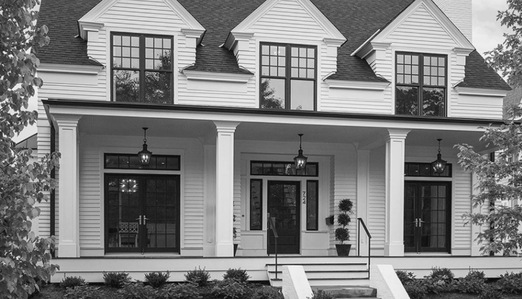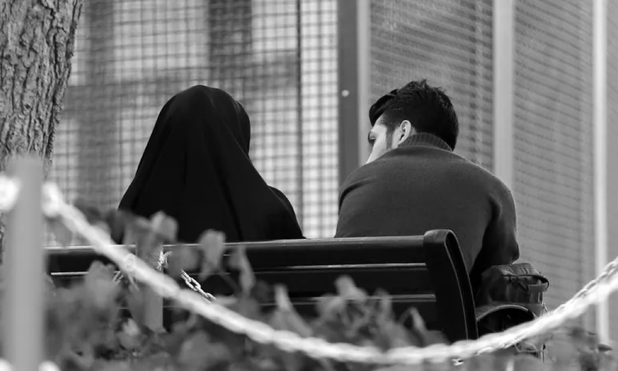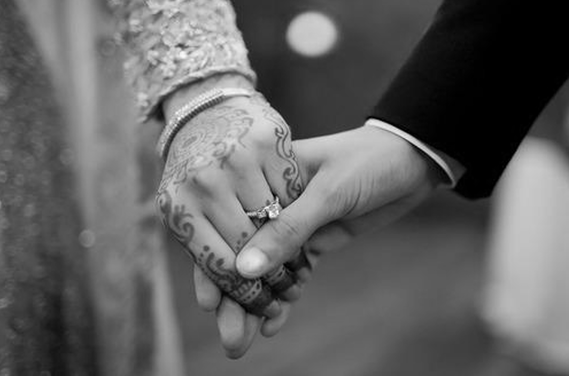|
Cultures are great ways to celebrate human diversity, however when they clash with Islamic values, they will most likely bring negative circumstances. Islamically, there is no obligation to live with in-laws.
In general, it is the duty of the husband to provide at least one private room where his wife can have her own privacy. This room should only be accessible to the husband and wife. No other family members. Imam Abū al-Ḥasan al-Qudūrī (may God’s mercy be with him) writes, “It is incumbent upon him to house her in a separate building in which none of his family [members live], unless she chooses that (to live with other family members).” (Mukhtaṣar al-Qudūrī) It should also be noted that one should try their utmost in cooperating and respecting in-laws. In the least, a husband should provide, a basic separate accommodation for the wife, especially if he has the financial capacity to do so. It might also be worthy to note that the Islamic duty upon any husband is to serve both his wife and parents. Living in a separate accommodation is not against any Islamic injunction. Despite living separately, serving and honouring parents can be rendered by constantly visiting parents, attending to their needs and maintaining ties with them. Unfortunately, many cultural norms are a means of friction amongst family members. If one follows the Islamic instructions, one will certainly experience peace and harmony.
0 Comments
Communication is very important in matters such as determining a suitable marriage partner. In most cases, parents are looking out for the best, regarding their children. Parents are duty bound to provide encouragement and sincere guidance. However, parents are not to force their children into a marriage.
You should respectfully communicate to your parents, your choice of a good spouse. Your consent is mandatory for the marriage to be valid. It is recommended that you respectfully and openly speak to your parents related to your specific intentions of a marriage partner. This can be rendered by communicating with the more approachable parent first. Trusted relatives can also be involved in the discussions. Caring parents will be understanding and help deal with the situation. In some situations, there are cultural barriers, which have nothing to do with Islam. These cultural practices become an obstacle for a genuine, responsible individual to marry a partner of his or her choice. In such situations, a little patience is required. Respectful and open discussions should take place with parents and elders of the families. Community imams who understand the situation may also play an important role in facilitating appropriate steps for the marriage to materialize. Seek help from trusted community resources. “A previously married woman has more right regarding herself than her guardian, and the permission of a virgin must be sought (for marriage)” - (Saḥīḥ Muslim) “A young woman came to the Prophet (peace and blessings upon him) and told him that her father had married her off against her will. The Prophet (peace and blessings of upon him) gave her the choice (to nullify the marriage or stay in the marriage)” - (Sunan Abī Dawūd) “It is not permissible for the guardian to force a sane mature virgin woman to marry… if she refuses (to marry someone), she cannot be made to marry” - (Mukhtaṣar al Qudūri) Here is how a traditional islamic marriage ceremony typically takes place. Watch this brief video for information. Have you been to a traditional islamic marriage ceremony? Are you getting married and want to set up a ceremony? Here is what to expect at the event:
Contact Imam Services for your ceremony. We are here to tailor your ceremony according to your needs. Getting married? Need to book a marriage officiant? Watch this brief video below for everything you need to know about booking a marriage officiant. Getting married? Need to book a marriage officiant?
Here are the steps required to book a marriage officiant.
Regarding the question of a sunni muslim woman marrying a shia man, kindly note that those wishing to adhere to Qur’ānic principles and prophetic teachings know that marriage is only permitted to certain individuals. As a general principle, the Qur’ān dictates that a Muslim woman can only marry a Muslim man.
“And do not give (your women) in marriage to polytheist men, unless they come to believe” (Qur’ān 2:221) Regardless of what one labels themselves to be, if one sincerely believes in all the major tenants of Islam as outlined in the Qur’an and authentic Ḥadīth, they are considered a genuine Muslim. Some of these tenants are listed below:
And Allāh Knows Best Mahr is an Arabic islamic term used to denote a bridal gift that is given to the bride by the groom at the occasion of marriage. This is an Islamic obligation upon the husband. A husband receives great blessings from Almighty God for fulling this Qur’anic injunction in obedience to Him. In Islam, mahr is the right of the wife (bride). The husband (groom) offers an amount, commodity or service that is then negotiated and finally agreed by the bride (wife). Technically, this is payable to the bride immediately upon the completion of the nikāḥ / religious marriage ceremony. If the wife wishes, she may agree to take a portion of it on an immediate basis and receive the remainder in installments or at a later stage. If the wife wishes to forsake or forgive her right of the mahr, she may voluntarily do so. “Give the women [upon marriage] their [bridal] gifts graciously. But if they give up willingly to you anything of it, then take it in satisfaction and ease.” – Qur’an 4:4 Getting married? Need a marriage licence? Watch this brief video below for everything you need to know about a marriage licence. Getting married? Need a marriage licence?
Here are the steps required to obtain your marriage licence.
Once an islamic divorce takes place, here are the key obligations of both parties:
Husband:
Wife:
Note: The above are islamic obligations which will impact one’s relationship with the Almighty and the next life. In Canada, legal obligations vary from islamic responsibilities. For information on the legal topics, kindly consult a lawyer. By Shaykh Yūsuf Badāt
Did You Know About the Following Muslim Divorces?
Unlike many cultures or religions, Islam provides a practical and realistic approach to every human situation. Marriage and divorce is no different. There is no sin, objection nor humiliation in divorcing when it is required. Last Resort Marriage is supposed to be forever. However, some marriages just do not work out. Islam encourages counseling, mediation and family therapy before taking the final step to dismantle the marriage relationship. If the couple has exhausted every effort possible to repair the marriage, the best option is for the couple to go their own ways, with peace. “Divorce may be pronounced twice, thereafter either remain together honourably or depart with peace.” – (Qurʾān 2:229) “There is no objection if you divorce your wives [for valid reasons].” – (Qurʾān 2:236) “To end a marriage for good reasons is allowed (mubāḥ) with no dislikeness (karāhah). Divorce is praiseworthy (mandūb) where marital rights are not being fulfilled and there is too much discord.” – (I’elā Al-Sunan) Types of Divorce in Islam
Triple Divorce, An Evil Practice The general notion [based on ignorance] is that in order to divorce, one must islamicaly pronounce the divorce three times. The reality is that issuing three divorce pronouncements whether all together, in a single instance or three separate intervals, is prohibited in Islam. A husband can end the marriage with one or two pronouncements of divorce, followed by the passing of three menstrual cycles, therefore there is no need nor requirement to pronounce three. Pronouncing three divorces is regarding as a bid’ah (reprehensible innovation in religion) by both classical as well as modern islamic jurists. This is why God states the maximum of two, when addressing the topic. See verse below: “Divorce may be pronounced twice, thereafter either remain together honourably or depart with peace.” – (Qurʾān 2:229) Wife Initiated Divorce In Islam, a wife also has the right to initiate the divorce, where required, through the Khulaʾ and or Faskh procedure. In Khulaʾ , the wife initiates the divorce and usually gives up a religious financial right such as outstanding mahr (bridal gift) during such an Islamic divorce. Faskh (annulment of the marriage) is applied in a scenario where the husband is either not fulfilling rights of the marriage or there is abuse. Both Khulaʾ and or Faskh have specific rules which must be adhered to when they are employed, on a case by case situation. Separation in Islam In Islam, a person is either married or not married. There is no such thing as an automatic marriage separation if one of the partners wants out, according to Islam (contrary to the western legal system). Separation in a marriage can only come into existence, islamicaly, if both spouses mutually agree to a separation. This is usually the case if both partners have serious issues and mutually agree to a separation period prior to formalizing any further decision of reconciliation or divorce. Legal Divorce in a Non Muslim Country There are two views among contemporary muslim jurists regarding the Islamic validity of a legal divorce issued in a non muslim court. One view is that a judge’s divorce decree from such a court, also automatically serves as an Islamic divorce. The other position is that it can only serve as an islamic divorce if the husband has signed the legal divorce documents. If not, the wife must seek her Islamic divorce through the Islamic Khula or Faskh procedures before or after a legal divorce. Some Examples Where Divorce is Required in Islam
Even though divorce is not a pleasant matter, it is a necessity in many situations. Dismantling a marriage relationship is no easy feat however is praiseworthy in some situations. As long as the institution of marriage has been in place, the rules and stipulations of ending a marriage, through divorce have also been applied. “Live in peace or leave in peace.” By Shaykh Yusuf Badat
Marriage is an important component of human life. In each of the stages of human growth (infancy, childhood, teenage period, adulthood and the final stage of old age), there are numerous privileges, challenges and responsibilities. When one passes through these phases of life, understanding and fulfilling rights and responsibilities, one is bound to experience peace, tranquility and bliss with oneself and also the people one is surrounded by. Marriage is something that is to last forever. This is why it is said, “marriage is not a ‘word’ rather a ‘sentence’… ‘a life sentence’”. Marriage is a union that unites a man and woman, making them so close to one another that they now function as one unit. Each partner becomes a pillar of support and kindness for the other. The following verse of the Noble Quran expresses this profound relationship; They are apparel for you, and you are apparel for them. (Quran 2:187) Looking into the depths of this verse, the following meanings are highlighted; Closeness: Clothes are closely placed on our bodies. The inner garments we wear generally touch our skin. This perspective displays that the husband and wife are so closely attached to each other that they can confide in each other, sharing each other’s joys and sorrows without any hesitation what so ever. Concealment: Clothing hides one’s nudeness. Body pimples, body hair, private organs etc. are all hidden from public view. In marriage, the couple are to hide each other’s personal blemishes and faults from others. Exclusiveness: Our garments belong to us. They are our property and no one has the right to take them away. In a similar fashion, this verse points out that married couples are exclusive to their partners. This exclusivity bond ensures that the husband and wife will never cheat each other. They will always remain exclusive for one another. Protection: One of the functions of clothing is to protect us appropriately from the climate and other dangers, whether it be the heat of the summer or the bitter coldness of winter. Certain garments also protect from dust, snow and rain etc. On the very same token, the husband and wife protect each other from all forms of harm, abuse, hurt and injury. They build a home together in all goodness and peace. Beautification: Our clothing makes us presentable and respectable. We feel good about ourselves when we wear nice, neat and tidy clothing. We feel dignified. The marriage bond is of a similar nature. Each partner beautifies the other and feels dignified through the marriage. They also beautify each other by teaching each other the good. They are there for each other emotionally, physically, socially and economically. Thus they beautify one another. Marriage is an intimate bond. Both partners must do their best to maintain this bond. Some years ago an elderly man told me that his wife had passed away after a successful marriage of over 50 years. He indicated that he had enjoyed every moment of his marriage. I inquired the secret to the success of his marriage. He replied by declaring that two specific traits were always adhered to in their marriage. Firstly ‘respect’. He mentioned that since the day they married, they promised to each other that they would always respect each other, no matter what. This respect was always displayed in speech, communication, emotions and interaction. Respect in arguments as well. Secondly, the couple would not allow any disagreement to be an obstacle in the sweetness of their union. They ensured that they would settle their differences before the end of day. This is indeed is an example of maintaining the bond of marriage. Let us strive to bring this bond alive through closeness, concealment, exclusiveness, protection and beautification. The Quranic prayer is something that we should always ask for; …and those who say, Our Lord, give us, from our spouses and our children, comfort of eyes. (Quran 25:74) |
Archives
March 2021
Categories |







 RSS Feed
RSS Feed